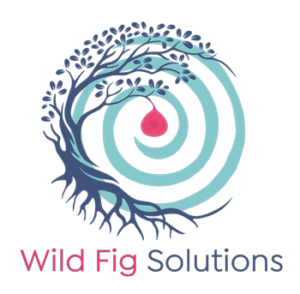Financial security. A healthy eating programme. Those sales numbers. Control. Meditation. A drink. To be right. That holiday. A promotion. This partner to love me. The kids to behave. Or all, or none, of the above?
To need: to require something because it is essential or very important rather than just desirable.
So what is an essential need? Really. At what point do we draw a line and say ‘that’s essential, this is desirable.’
Of course we don’t.
We move through life, listening to what others say we need. Or we hear what they say they need and then we want to emulate that so we try and get it too. Or maybe we reject it, not wanting to be seen to be like them.
Needs, wants and desires all heaped together in one big pile, inextricably linked with identity and social conditioning: ‘when I’ve got X then I’ll be good enough, then I’ll be OK’.
Sometimes in this chase to maintain a need-driven identity there’s even resistance to the very thing we say we need, to maintain the identity that’s been built on us not having it.
So as a first step, what if we do stop and consider where the line is drawn between essentials and desirables?
Maslow very helpfully extricated the needs from the pile and put them in his pyramidal hierarchy. Beginning with the basics of food and shelter. Get those met then we can move to the next level. Like gamers collecting stars or coins. All the way up to the final (unpublished) level which Maslow discovered in his final years, to Self Transcendence, where the whole relationship with this body and identity is transformed and seen for what it is.
So thanks to Maslow we can step back and ask ‘at what point on the pyramid do my needs turn into desires?’ At what point has something that’s a preference been mistaken for an essential?
What about the person next to you? What would they say?
What if the person was homeless or living in rural Africa? Where would they say the line is drawn, where desires begin?
Notice the variance? No two answers the same. Even between people who apparently have nothing but the most basic food, water and shelter needs met. Even between them, one could be brimming with gratitude for what they have and enjoying life, the other caught in despair and anguish believing more is needed.
No two the same. No objective reality to be found in needs. No single truth to be found in what is really needed to be OK.
Then bring this back to you. In the same way that needs are inconsistent between people in apparently similar situations, so too for you. Your needs vary and shift and change, even without your situation changing. Today I need this so I can feel OK, tomorrow it’s that. None of them entirely meeting the need so more of it is sought, or this thing discarded for that thing— ‘ah THIS! This is what I need!’ — until you see that ‘this’ isn’t quite cutting it either.
Shaky, unstable, insecure ground to stand on.
And yet this is the ground we’ve been taught to look to. Taught that if we find the problem, find the needs that aren’t being met, then we can work hard to fill those gaps by changing the people we’re with or the circumstances we’re in. Then we’ll be OK.
And yet something else always pops up. Something else will shift and change. The landscape appears different. A new need, or a bigger need, or a lesser need. But something.
An endless chase.
So what if an exploration of needs, instead of being a signal to look outwards, take action and scramble to get them met, was instead a signal to see that our scrambling is the very thing that keeps us from everything we think we need?
That the scrambling serves no purpose but to tire us out and to put what we seek even further away. Adding nothing to our experience but complication and confusion.
What if we knew that our system has an in-built capacity, not just to find food and water in the most creative ways necessary, whatever the circumstances we’re in, but also an in-built capacity to create, connect, grow, develop and to self-transcend.
That the narrative over the top about ‘you’ll be OK when…’ is not the motivating force that has us meet these needs or not, it’s not a voice of clarity, it’s a voice of lack and fear.
The narrative is also not what holds us back when we think we shouldn’t be reaching for the drink / chocolate / drugs. But sure as damn it, the narrative is the one that will chastise and criticise for doing or not doing.
That voice is not you.
It’s a chattering mind that plays the same tapes over and over.
Behind that voice is where the needs stop. Constant, steady wholeness where the voice is no longer compelling or convincing.
And then, resting in this place, we continue to eat, drink, find shelter, learn, develop, create.
Maybe with fewer of the ‘bad’ habits as they no longer make sense.
Certainly with less obstruction to doing what’s obvious to do.
And from here, real freedom, real fulfillment, real connection. Needs evaporated. No hierarchy in sight. No need for one.
What you need, to be OK, is nothing.
And yet, now, everything is here.
With love, Helen

